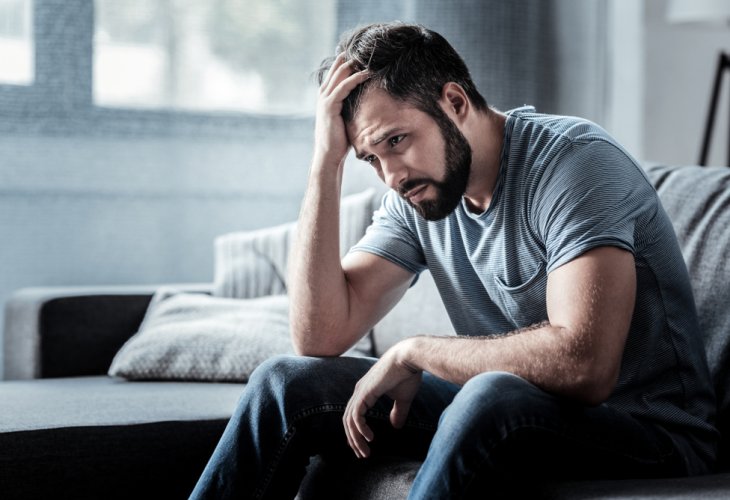Depression and Anxiety
How to Recognize and Treat Depression: Symptoms, Diagnosis, and Proven Treatment Options
Learn how to identify the signs of depression, when to seek help, and the most effective therapies
 (Photo: shutterstock)
(Photo: shutterstock)We all experience difficult times in life where we may feel down or sad, and not every low period qualifies as a depressive episode. How can we tell if our low mood is actually depression? How do we distinguish between a passing phase and a situation that requires external help to prevent deterioration?
What is Depression?
Depression is a mood disorder characterized by feelings of sadness, helplessness, low self-worth, or guilt, along with impaired daily functioning. It can occur in cycles with breaks in between or manifest as a more continuous and long-term mental state.
Depression is one of the most common mental disorders and has been recognized by the World Health Organization as the leading cause of functional disability worldwide. Depression significantly impacts people’s lives, and those who struggle with it may suffer greatly.
While it is a widespread phenomenon, no single cause for depression has been identified. It is believed to result from a complex combination of biological, psychological, environmental, and social factors. Additionally, difficult life events such as loss, unemployment, or past trauma may contribute to its development.
Depression can show up in many ways, including sadness, irritability, lack of enjoyment in previously pleasurable activities, appetite changes (weight gain or loss), restlessness, sleep disturbances, and more. Not every individual will experience all symptoms, however, persistent sadness and a loss of interest in formerly enjoyable activities are hallmark signs of depression. An official clinical diagnosis requires both of these symptoms to be present.
How Do I Know If I'm Depressed?
If you’ve experienced a persistently low mood for at least two consecutive weeks- lasting most of each day- and you’ve lost interest in activities you once enjoyed, you may want to consider whether you are also experiencing additional symptoms that indicate depression:
Feelings of guilt, hopelessness, helplessness, or worthlessness
Difficulty concentrating or remembering
Lack of energy
Restlessness or apathy
Appetite disturbances- significant weight gain or loss
Major sleep changes- too much or too little sleep
Suicidal thoughts
Not all symptoms appear in every case, and it's important that these symptoms are new and not long-standing. For example, if someone has always struggled with sleep, that symptom alone may not indicate depression.
Self-diagnosis based on common symptoms isn’t enough. To confirm that these emotional struggles are indeed due to depression and not another cause, it’s best to consult with a professional- either a psychologist or psychiatrist- who can perform a clinical interview and assess the source of the distress.
How Can Depression Be Treated?
If you suspect you’re dealing with depression, it’s important to seek professional treatment as soon as possible. Depression has a tendency to persist or worsen over time, particularly during the first few months. Studies have shown that the earlier depression is treated, the lower the chances of it recurring in the future. Additionally, depression can severely affect one’s relationships, work, and parenting. Seeking help can minimize the negative impact on all areas of life.
Types of Depression Treatments
Medication:
Antidepressants are a widely used and effective form of treatment. They can relieve symptoms and make it easier to participate in psychological therapy.
Psychodynamic Therapy:
This form of talk therapy helps identify the emotional and life-related causes of depression. It aims to make deep changes in the psychological mechanisms that contribute to and maintain depression.
Cognitive Behavioral Therapy (CBT):
CBT focuses on identifying and changing thought and behavior patterns that contribute to depression. It follows a structured treatment protocol and is proven to be highly effective.
Recent research indicates that combining medication and psychological therapy often produces the best results- providing quicker relief and longer-term benefits. If there is no improvement, a psychiatrist or psychologist may recommend alternative treatments tailored to more severe cases.
Orly Samira is a CBT therapist.

